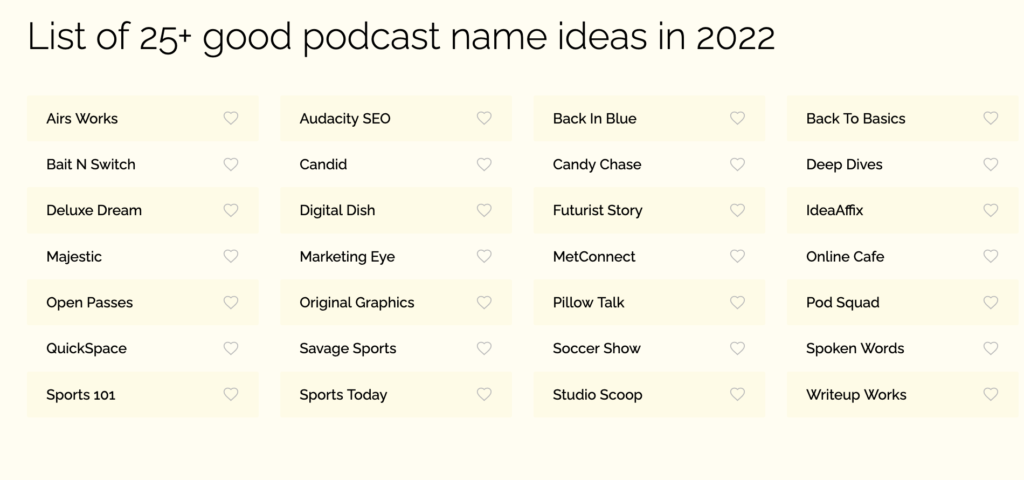Podcasting isn’t necessarily a stranger in today’s digital world. However, it’s only recently that podcasting gained popularity, especially when the pandemic hit. As a result, people had to remain at home and look for different ways to entertain or express themselves.
Like vlogging, podcasting offers a free-for-all low creation cost and accessibility to niche audiences. Therefore, more people are jumping to podcasting now. They want to share their stories and establish a name in their fields. Now, podcasting is one of the most popular tools to build a personal brand. Even established personalities utilize this tool to connect to their audience and create more following.
If you want to build a great personal brand, read below to learn why podcasting is the right platform for the job.
Understanding Personal Branding
Building a personal brand has become essential in a seemingly transparent digital world. Personal branding is an effort to influence the public by showing a combination of skills and experiences. People typically build a personal brand to be known as experts in their preferred industry.
Aside from becoming an industry leader, having a solid personal brand offers multiple opportunities to earn. And there are many platforms to help out, such as vlogging, writing, and podcasting.
Why Podcasting Is Great for Personal Branding
Podcasting is an anything-goes platform where people from different professions can talk about relevant topics in their industry, from how-to tips to the latest updates. This makes the platform excellent for building a personal brand.
In addition, here are five reasons why podcasting is great for personal branding:
1. Easy to Consume
Listening to podcasts is more manageable than reading a book or watching a video. Since podcasts mainly offer audio content, listeners can follow their daily routines while consuming an episode. You can even have fun while listening to podcasts, playing your favorite card games, or solving a daily Wordle.
2. Building Better Relationships
Excellent branding means having a deeper connection with the audience, and podcasting can provide that connection. When listening to podcasts, people feel like they’re a part of the conversation and the hosts are personally talking to them. You can use this to connect with your audience by letting them feel you’re a friend telling a story or giving advice.
3. Get Started Anytime
As your podcast becomes more successful, you need to invest in more equipment for a quality output. However, the great thing about starting a podcast is you can start anytime without premium gear. You can grab your smartphone or laptop and start recording. Make sure that people can understand your message clearly.
4. Expanding Your Network
An interview-style podcast is a popular format, especially in the age of influencers. You can bring in contributors to your show and let them share insightful information with your audience. The great thing about it is you’re likely bringing a guest who already has a following, so you’re expanding your podcast reach.
5. Accessibility to the Show’s History
Most first-time listeners often discover a show at its peak. Once hooked, they will head to the previous episodes to learn more about the podcast. Podcast episodes are accessible, allowing listeners to follow the progress of their newfound shows anytime. So, if you’re starting with a few listeners, don’t worry. Your target audience will stumble upon your content.
Starting a Podcast
If you’re interested in creating a podcast as a way to build a personal brand, these are the few things you need to help get you started:
Conceptualize Your Show
First, think of an excellent concept for a show. The idea should set your podcast apart from other podcasts and highlight your brand.
These are the essentials that you need to conceptualize your show:
- Name and description
- Themes and topics
- Goals
- Categories
- Artwork style (for thumbnail or social media)
Here’s a handy podcast name generator for you to pick a great and easily brandable name for your podcast:

Identify Your Format
These are some of the most common podcast formats you can try:
- Interview
- Narrative
- Solo
- Multi-host
You should identify the length of your episodes. Some suggest the average should be 40 minutes or below, while others say it should be shorter. Podcasts are becoming longer and longer, with some posting a standard of one hour and no less.
Additionally, set a posting schedule and be consistent with it. Your listeners can easily incorporate your show into their routines as long as you stick with your plan.
Gather Your Equipment
When starting a podcast, you don’t have to invest in expensive equipment right away, especially if you’re unsure how your podcast will turn out. Typically, you need the following to begin:
- Small room for better acoustics
- Recording device (computer, laptop, or smartphone)
- Microphone
- Editing software
Once you get your podcast rolling and see high traction as you progress, you can invest in better equipment.
Build Your Personal Brand Today!
Creating a significant online presence isn’t for businesses anymore in this digital age. Now, personal brands are becoming more critical than ever. People want to show themselves as respectable industry leaders online, and they go to great lengths with the right tools.
Podcasting is among those excellent personal-brand-building tools that connect to the audience while establishing a person’s expertise in the industry. So, if you’re looking to build a personal brand, start with podcasting and let your voice be heard.

